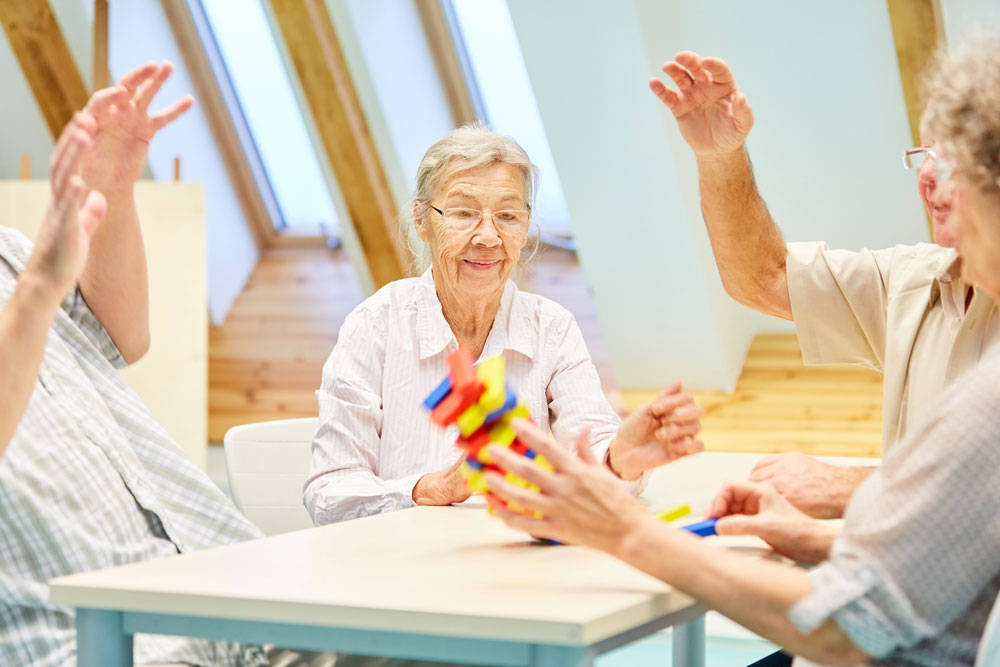What is the work environment like at night?
This article is written from a Swedish perspective. Hopefully, it can inspire interested individuals from other countries.
Nights at a nursing home are a special time with low staffing. Someone is anxious, a colleague needs help with a turn. The nursing assistant is alone with sometimes difficult decisions. Working at night is often solitary work. Night work in care involves occupational risks and is covered by several of the Swedish Work Environment Authority's regulations. For the caregiver, it is also important to provide night staff with specially targeted continuing education that is adapted to the challenges they face. Good care and a good working environment go hand in hand.
 Foto: Mostphotos
Foto: MostphotosRules for Night Work
Night work involves many health risks. Therefore, there are several regulations that specifically address these risks. Examples of regulations that concern night work are "Solo Work AFS 1982:3" and "Medical Checks in Working Life AFS 2019:3".
In addition to these, there are a number of occupational safety regulations that can affect work in healthcare even during daytime. Examples are regulations on measures against threats and violence, work at the computer screen, inspection of lifting devices, infection risks etc.
One area where there is a lot of variation between different organizations is how supervisory staff are contacted during on-call hours. In some places, the on-call nurse is also the supervisor. In other places, there is a separate on-call organization for supervisory work.
Teamwork Around the Clock
Sometimes there are conflicts between night and day staff in a unit. Often this is due to unclear expectations or that the dialogue within the staff group is not functioning well. It also happens that night staff are accused of sleeping during their shift. This certainly happens occasionally, but most often night workers are dedicated to their work with our elderly. Furthermore, the residents today are so demanding that there are rarely any longer quiet periods during the night shift.
Often a number of the residents have turning schedules. Some can participate themselves. Some are light and cooperative others are heavy and resist when they are to be turned. It is important to do a risk analysis and assess the need for double staffing. It is best if this assessment is done directly when a turning schedule is prescribed, to reduce the risk of work injury.
It is easy to get a little cold at night. If you put on a sweater, it is important to remember to take it off when you are caring for residents. Otherwise, there is a risk that you will spread infection between the residents. To avoid falling asleep, you may need to stretch, jump, splash your face with cold water, drink coffee or eat fruit.
Perhaps there are residents who should not or cannot be left alone in the unit, which can cause stress and difficult decisions if a colleague needs help.
Even the nurse at night is often working alone. In a medium-sized municipality, the nurse may have four - five nursing homes, a number of LSS-housing and patients in home care. Often the night nurse also has a supervisory role. The possibility of getting support from a doctor is also limited.
Reflection - Working Environment at Night
Care Staff:
- What do you do to stay awake at night?
- Do you usually participate in APT in the unit? Do you have a safety representative in the residence?
- Are there any issues that the safety representative should be informed about?
- Does it work to work based on the work orders or routines that exist for the unit?
Manager, Nurse, Occupational Therapist and Physiotherapist:
- Is the night perspective included when you make risk assessments in the operation?
- Is it possible to get help with turning?
- Do you make a risk assessment when a turning schedule is prescribed to assess if there should be double staffing?
- Do you go safety round with a night focus?
- Does the contact with the nurse and supervisor during on-call hours work well?
Residents and Relatives:
- Do the routines seem to work at night?
- Is there anything documented about how the nights work?
Erland Olsson
Specialist Nurse
Sofrosyne - Better Care Every Day

Aktuellt i media
- 2025-01-02 04:00 18 Arbetsmiljö och utveckling, 07 Riskhantering, 03 Ledarskap, 05 Planering
- 2024-12-30 04:00 02 Värdegrund, 17 Psykisk hälsa, 04 Bemötande
- 2024-12-23 04:00 01 Kvalitet
- 2024-12-19 04:00 04 Bemötande
- 2024-12-16 04:00 01 Kvalitet






